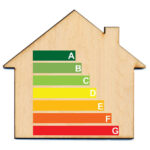
‘Refined energy performance system’ recommended
16th February 2024
National Retrofit Plan: ‘A lot done, more to do’
16th February 2024CAP24: Retrofitting targets remain unchanged

In the latest Climate Action Plan update (CAP24), the Government has retained its targets on retrofitting.
Overall, the plan claims that it provides a “roadmap towards achieving” the State objective of halving Ireland’s emissions by 2030 and reaching net zero by no later than 2050, as government must legally strive towards under the Climate Action and Low Carbon Development (Amendment) Act 2021.
Under policy commitments outlined in Climate Action Plan 2021, by 2030, the Government is committed to:
- achieving 80 per cent of electricity demand from renewable sources;
- retrofitting 500,000 homes to a BER B2 or cost optimal equivalent standard; and
- installing 680,000 heat pumps.
Although there are no new specific objectives outlined, CAP24 nevertheless hypothesises that government must adopt new approaches to address emission reductions, particularly in areas such as retrofitting and renewable energy. It is likely that the need to innovate will be at the heart of any new retrofitting policy developments to come.
The action plan document also outlines the importance of the newly established Heat and Built Environment Taskforce, which it states will “accelerate and drive delivery in relation to retrofitting, renewable heat, district heating and decarbonisation of the building stock”.
With fossil fuel prices remaining volatile, in addition to the need for their phaseout amid the State’s carbon reduction obligation, CAP24 outlines the role that retrofits can play is ensuring that there is heightened energy efficiency.
Informed by ESRI analysis on the distributional impacts of increasing carbon tax, the Department for the Environment, Climate and Communications, through CAP24, asserts that the Government has ensured that the proceeds of increases in the carbon tax are “used to protect households most exposed to higher fuel and energy costs, and to invest in new climate action programmes”.
“This includes expenditure on a socially progressive national retrofitting programme, and agri-environment programmes, to encourage and incentivise farmers to farm in a greener and more sustainable way,” CAP24 states.
On retrofitting of public sector buildings, the CAP24 document outlines that there are between 12,500 and 13,700 buildings in the public sector, including approximately 4,000 schools in the school sector and 1,000 buildings in the commercial semi-state sector. Buildings account for 44 to 50 per cent of the energy consumed by the public sector and almost half of total energy related GHG emissions. While this does not lead to new policies in retrofit, it underlines the scope for change which is achievable within the public sector.
Although there are frequent challenges with public opinion and getting public buy-in for retrofitting schemes, CAP24 optimistically states that, according to data from the Climate Conversations, the majority of Irish people (73 per cent) “understand the importance of retrofitting their homes to deliver on climate action”.
“Two-thirds of people have improved their attic insulation and the same proportion have improved their home insulation. Awareness of grants and supports for retrofitting is high, also at 66 per cent,” the report states.
Progress
Looking back on progress made in retrofitting, CAP24 shows that the policies and measures introduced under the National Residential Retrofit Plan have led to an increase in retrofit delivery. In 2023, under the SEAI residential and community schemes, there were:
- 27,200 home energy upgrades supported, which represents a 79 per cent increase year-on-year;
- 4,438 homes delivered across the energy poverty schemes, which represents an increase of 85 per cent year-on-year; and
- 8,481 homes upgraded to a post works BER or B2 or better in 2022, representing a 95 per cent increase year-on-year.
CAP24 further outlines that progress has been accelerated by the reforms previously introduced to the National Residential Retrofit Plan, which was originally published under CAP21.
The Government has a target of retrofitting the equivalent of 500,000 homes to a Building Energy Rating (BER) of B2 or cost optimal and installing 400,000 heat pumps in existing homes to replace older, less efficient fossil fuel heating systems by the end of 2030.
The Government, in not updating or overhauling policies for retrofitting, has clearly asserted that the policies published in pervious iterations of the Climate Action Plan provide a satisfactory framework for the Government to meet its retrofit targets.
Minister for the Environment, Climate and Communications, Eamon Ryan TD, told eolas Magazine in October 2023 that he was confident that the Government will meet its retrofitting targets. “We are going to make this leap in retrofitting because the Irish public like it,” Ryan said.
However, if the Government is to meet its retrofitting targets in the residential sector, it will need to find a way to alleviate the cost burden to working and lower-middle class people for whom existing retrofitting schemes remain unaffordable.
